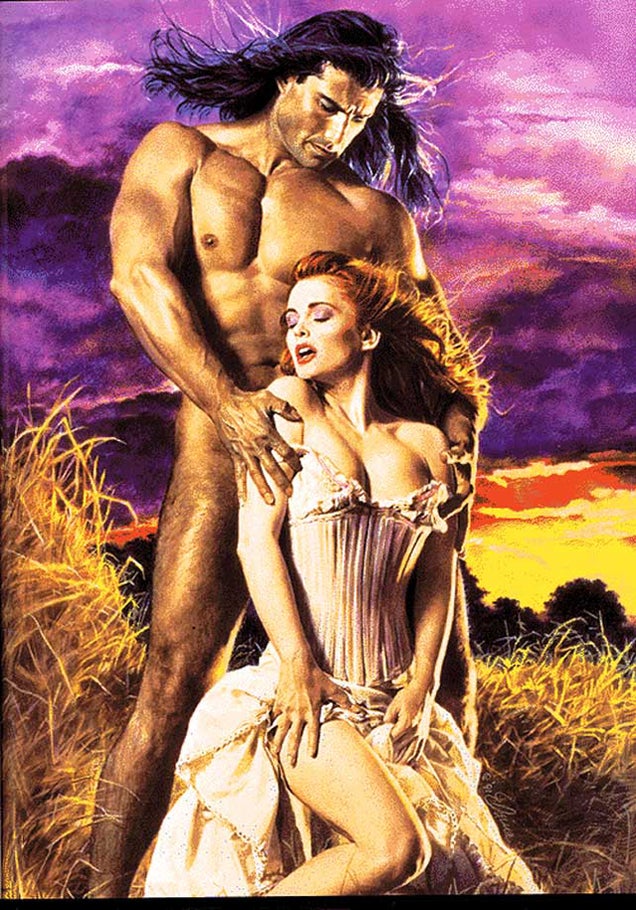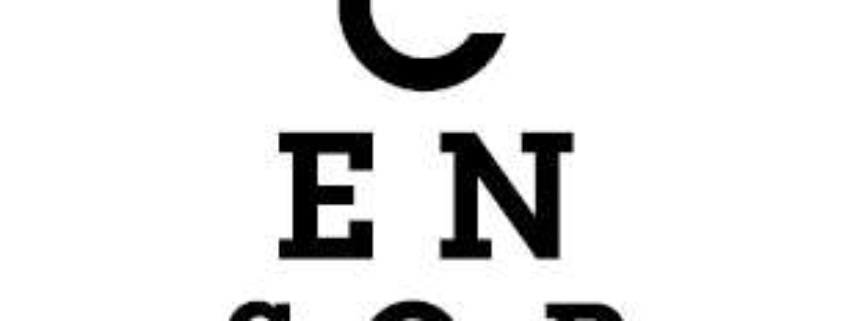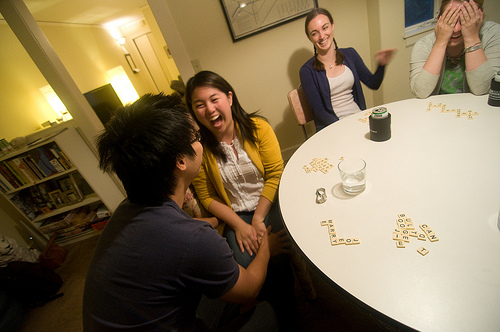Get Your Book Banned
Hello!
Welcome back, you crazy Bannagahammers!
While licking my wounds from my latest rejection, I’ve been taking a LOT of Buzzfeed quizzes. Evidently, I am not very 90s (which was weird since that was the decade of my youth), however, when I took the “What Era of Rock Are You?” quiz, I got 90s indie rock (very confusing);
If I were to be a 90s teen girl icon, I would be Laney Boggs (not surprisingly, I also have no idea who this is).

http://media.npr.org/assets/img/2013/01/05/p_graham757_wide-29ee96f9158cde37676dbd3e1638cdc8c2cb728c-s40-c85.jpg
Everyone knows that if I am going to be a 90s teen girl, I would have been Kathleen Hanna from Bikini Kill.
The Grey’s Anatomy character that I most resemble is Lexie Grey (I don’t know this person since I don’t watch this show); and in a past life I was an ancient Grecian philosopher.
You get the idea.

http://s3-ec.buzzfed.com/static/2013-11/enhanced/webdr01/21/11/anigif_enhanced-buzz-8297-1385050913-4.gif
I then took all the “How many of these ____ books have you read?” quizzes.
When I took the banned books quiz, I had read almost the entire list. And that started me thinking about why so many of the books I adore were on that list.

http://www.slate.com/content/dam/slate/blogs/browbeat/2013/09/12/franco_faulkner.jpg.CROP.article568-large.jpg

http://static.rogerebert.com/uploads/movie/movie_poster/a-clockwork-orange-1972/large_ihW5Ni1IInC8tabKNVsKIUyb28P.jpg

http://upload.wikimedia.org/wikipedia/en/thumb/1/10/Friday_night_lights_ver2.jpg/220px-Friday_night_lights_ver2.jpg
Did I read them because they were good books, or did I read them because they were banned?
What gets a book banned?
I went here and found out that there is really no rhyme or reason why books get banned, but there were some major themes that most people cited for the reason they wanted a book banned.
Offensive language:
Books that have been banned because of “offensive language” include Huckleberry Finn by Mark Twain, a bunch of books by Henry Miller because they were written by Henry Miller, and Sherman Alexie’s book An Absolutely True Diary of a Part-Time Indian were all banned for using offensive language. But, it’s more than just swearing a lot.
It’s how you swear, and how your characters swear. If you and your people use words society has a problem with, ones that speak to a larger problem like the N-word, people are going to become sensitive and are going to judge you on how you use it. When you’re a writer, swear words are no longer words you can just drop because you are frustrated and mad, they carry all the connotation and weight that made them swear words in the first place.
Sexually Explicit Content:
Toni Morrison’s Beloved has a yellow card for having sexually explicit content, as does Margaret Atwood’s A Handmaiden’s Tale.

http://i.kinja-img.com/gawker-media/image/upload/s–TnWs7Pfl–/c_fit,fl_progressive,w_636/18qj4hkn89swljpg.jpg
Beloved and A Handmadien’s Tale are not books that I think of as overtly sexual. However, they do deal with complicated feelings about sex and intimacy from a point of view that is not the standard one. We already know the story of the characters above: Fabio is a swarthy wild-man who lives by his wits and brawn, the Blonde is a plucky girl whose father dies and she has to head west to find a teaching job; they can’t fight their attraction and start doing it like monkeys; and at the final moment Fabio turns out to own the entire town and is filthy rich. They live happily ever after.
Or, something like that.
It is the “happily ever after” that people like. If you step away from this in your fiction, prepare to get your book banned.
Homosexuality:
Probably the fastest way to get your book banned is to have some sort of homosexual connotation to it.
The most recent brouhaha about a homosexual book was And Tango Makes Three, which is about two male penguins who do not have sex with each other, but do bond as a couple, who are given an egg to raise by the zookeeper, which hatches, and who then raise Tango, the hatchling, as their adoptive daughter. This kerfuffle has already been made fun of quite well:
But, still, it was just a book about penguins. Naked Lunch has actual homosexuals in it and it has been banned on and off since it was published. Leaves of Grass by Walt Whitman has a red mark, as does Howl by Allen Ginsberg. People have tried to ban The Color Purple not because it deals with issues like incest, but because of its homosexual content.
Violence:
Here, as in most things American, the rules are little more lax when it comes to violence. However, some interesting books have been sidelined for being “too violent.” Jack London’s Call of the Wild is a pretty good example. What gets a “too violent” label are memoirs or manifestos like Malcolm X’s Autobiography of Malcolm X, or The Words of Caesar Chavez by Caesar Chavez. Anything that might rile up the status quo can be threatening, and could possibly get your book banned.
Religious Viewpoint:
This is a pretty straightforward reason. However, it’s a free-for-all that depends on who is doing the condemning. Books get banned for religious reasons because they anger certain groups of people, like Salmon Rushdie’s The Satanic Verses or the Harry Potter series. It really all depends who is doing the banning. Bizarrely, Twilight is usually banned on religious grounds, and not for being “overtly sexual.”
https://encrypted-tbn2.gstatic.com/images?q=tbn:ANd9GcSEsm3nrFKULsKWsW9gYA8fel5tb4-9_vVWupWd-_qb4Dbx5tDO
Drugs:
Books banned on the grounds of excessive drug use are usually getting banned for other reasons, like Howl and The Perks of Being a Wallflower. Go Ask Alice by Anonymous is the poster child for a book banned due to including excessive drug use, and even though the book predates Lifetime movies, it really should have been one because it shows the main character, Alice, falling into despair because of her teenage drug use.
What does it all mean?
I think that if people want to ban your book, you’re probably doing something right. What I think you’re probably doing right is exploring a thought or a feeling that is uncomfortable and complicated, and in so doing exposes some hypocrisy that resides in us all. I saved my best example for last: Lolita. In 1955, the Sunday Express called Lolita “the filthiest book ever written.” Yet, on the cover of the copy of Lolita that I have, Vanity Fair’s blurb says that Lolita is the “only convincing love story of our time.”
Think about that.
Nabokov told Playboy that “I think my favorite fact about myself is that I have never been dismayed by a critic’s bilge or bile, and have never once in my life asked or thanked a reviewer for a review.”
Truth.
When asked about Ernest Hemingway and Joseph Conrad, authors who have not had their books banned to the extreme that Lolita was, Nabokov says that “in neither of these two writers [Hemingway and Conrad] can I find anything that I would have cared to have written myself. In mentality and emotion, they are hopelessly juvenile, and the same can be said of some other beloved writers, [to be] the pets of the common room.”

http://s3-ec.buzzfed.com/static/2013-11/enhanced/webdr03/21/11/anigif_enhanced-buzz-26515-1385052116-25.gif
It all depends if you want to make cute and cuddly art or not. To make a really great book is to risk being banned. So, follow these rules, and your book will probably get banned:
It is how you swear and your characters swear.
Deal with complicated feelings about sex and intimacy from a point of view that is not the standard one.
Just make your character gay.
Have all the violence you want.
Don’t worry about the religious vote: it will come, no matter what you do.
Do all the drugs you want.
If it gets banned, your book will live on because people will be talking about it, wrestling with it, and, especially, thinking about it for a very long time. Your book will live on long after the people who banned it do.















